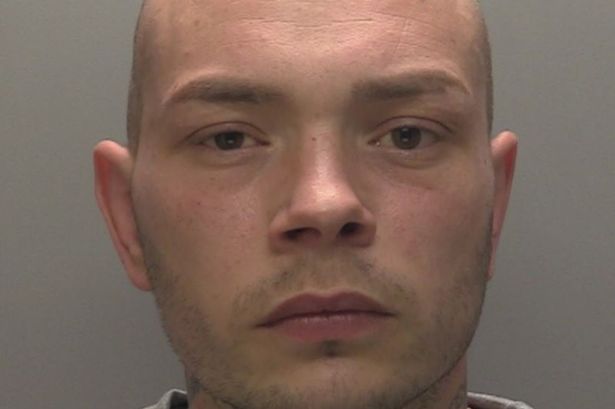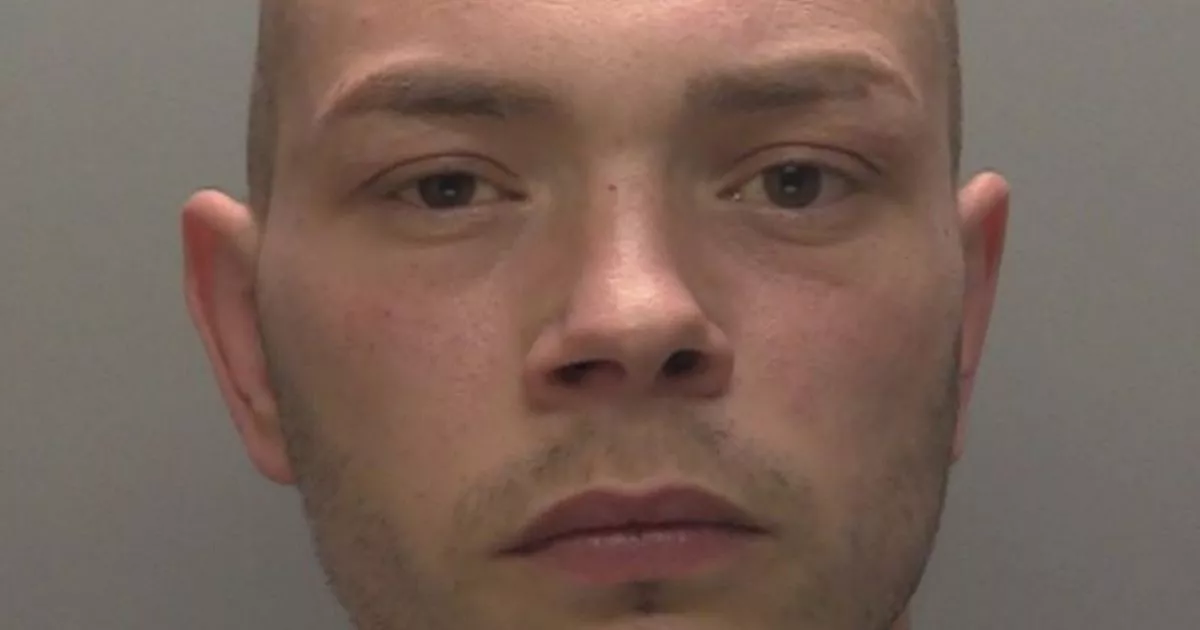

A drunken thug viciously attacked a man with a knife and a hammer, causing nasty wounds to his skull and hands, after going to the victim’s home for no good reason and banging on the door demanding to be let in. The unsuspecting man answered the door, not suspecting any problem, and there was a frightening struggle before he eventually managed in panic and desperation to get the door closed.
His attacker seemingly had no genuine motivation for the frenzied attack and it was “baffling” that it was somebody else’s dispute that he got himself embroiled in, Hull Crown Court heard. Daniel Brown, 32, of Kinloss Garth, Bransholme, Hull, but recently in custody on remand, admitted an offence of aggravated burglary on February 19.
Recorder Collingwood Thompson KC told the court that Brown armed himself with a knife and hammer and went to a man’s home in Coltman Street, west Hull. Brown did not know the occupier at all but someone else had been involved in a dispute with him.
Brown banged on the man’s door in a bid to get in and, when the occupier answered, Brown attacked him with both the knife and the hammer. The court heard that Brown managed to get inside the premises, where a second man was already there.
The second man had apparently been involved in a dispute with the occupier earlier in the day. That person claimed that he was trying to stop the attack. The occupier managed to get both of the men out of his home.
“Fortunately, after a struggle, he was able to get the door closed,” said Recorder Thompson. By the time he could do this, the man had suffered cuts to his skull, which needed to be stitched and glued, and cuts to his hands.
“The attack has had a serious effect on him, as you might expect in all the circumstances,” said Recorder Thompson. “He doesn’t feel safe in his own home. He has panic attacks. He feels on edge. The baffling part of this is why you got yourself involved in such a serious offence.”
Brown had told a probation officer that he had no memory of what he had done and he could give no real explanation for it. “You had consumed so much alcohol that you have no memory of doing this,” said Recorder Thompson.
It was Brown’s third conviction for a burglary offence and he had convictions involving threatening violence. There were a number of aggravating features to the latest offence and Brown had been subject to a suspended prison sentence at the time, which he breached by committing the aggravated burglary.
“The victim has been compelled to leave his home,” said Recorder Thompson. Brown did not force him to give evidence and “relive the experience” at a trial by denying the offence.
A pre-sentence report reached the “inescapable conclusion” that Brown posed a “significant risk” of committing further serious offences. There had been an increase in the level of violence that Brown had used from his previous convictions. This was “very marked” and Brown seemed to have “no memory or motive” for the offence.
If Brown continued to commit offences of violence, the sentences would get longer and longer.
“It’s going to be a matter for you over the next few years how you want to live your life,” said Recorder Thompson.
Michael Masson, mitigating, said that it was a very serious offence but Brown had pleaded guilty and he had avoided the need for a trial. He had suffered emotional and other problems.
Brown was jailed for eight years after being branded a “dangerous offender”. He will be on extended licence of three years after his release from prison. He was given a 10-year restraining order.

